All the Answers
Well-known member
What is the most critical stage of dengue and why is it dangerous? - Infobae

Source:
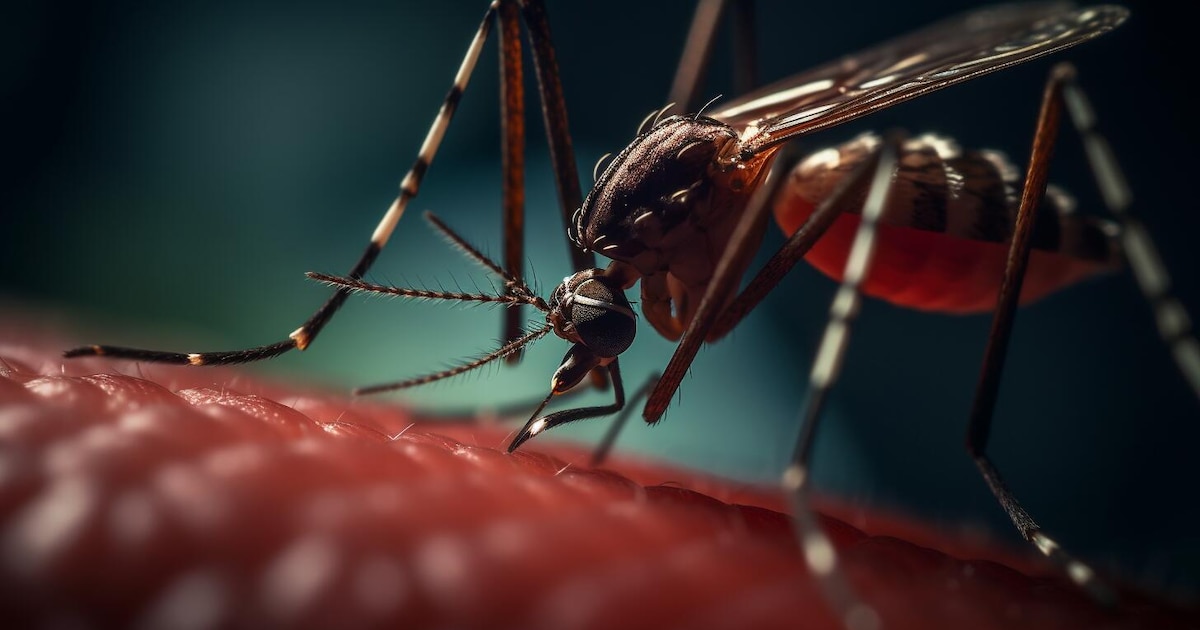
¿Cuál es la etapa más crítica del dengue y por qué es peligrosa?
Argentina atraviesa un brote histórico de la enfermedad viral transmitida en la región por el mosquito Aedes aegypti. Cómo es su evolución, qué signos de alarma hay que tener en cuenta y consejos para prevenir la patología
March 21, 2024
Argentina is going through a historic outbreak of the viral disease transmitted in the region by the Aedes aegypti mosquito. What is its evolution like, what warning signs should be taken into account and advice to prevent the pathology
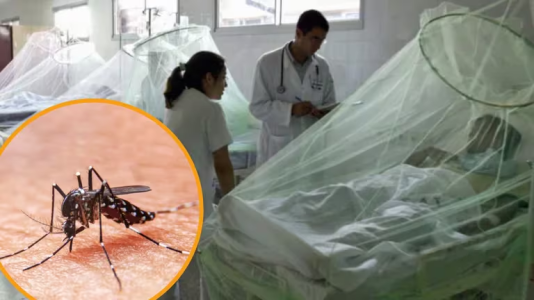
Dengue numbers are increasing. - Credit: Andina
The most obvious symptom that Argentina is going through a historic outbreak of dengue , the viral disease transmitted in the region by the Aedes aegypti mosquito, is that 120,007 infections and 79 deaths have been recorded so far in the current season.
Although 70% of cases are asymptomatic, the disease can have severe symptoms in some cases. And that is where the concern on the part of the health authorities increases.
According to the Ministry of Health of the Nation , it is a viral disease transmitted by the bite of the Aedes aegypti mosquito . When the mosquito feeds on the blood of a person sick with dengue and then bites other people, it transmits the disease to them.
Contagion only occurs through the bite of infected mosquitoes, never from one person to another , nor through objects or breast milk. However, although it is rare for pregnant women to infect their babies during pregnancy.
What serotypes of dengue exist?
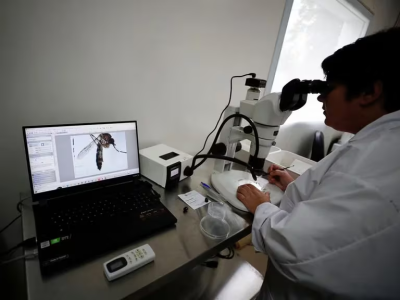
Argentine biologist Marianela Garcia Alba observes the Aedes aegypti mosquito, the vector species of the dengue virus, under a microscope in a laboratory of the National Atomic Energy Commission (CNEA) in Buenos Aires. April 12, 2023. REUTERS/Agustin Marcarian
There are 4 serotypes of dengue, called DEN-1, DEN-2, DEN-3 and DEN-4 ; that share structural and pathogenic analogies; so anyone can produce severe forms of the disease.
Regarding the serotypes of the virus currently circulating, the Ministry of Health stated: “In this season, 3 serotypes have been identified so far circulating in the country: DEN-1, DEN-2 and DEN-3. predominance of DEN-2 followed by DEN-1. During the last epidemiological weeks, 99 cases of coinfection of serotypes DEN-1 and DEN-2 were detected, corresponding mainly to the NEA and Center regions. They were not associated with deceased cases.”
While regarding the age groups affected by this viral disease, they elaborated: “Although cases of dengue were recorded in all age groups, between 15 and 64 years of age the cumulative incidence is higher than in the general population (255) and decreases. towards the ends of life. The minimum cumulative incidence is observed in children under 4 years of age, with 62 cases per 100,000 inhabitants, and a maximum of 335 cases per 100,000 inhabitants between 25 and 34 years of age.
How do I know if I have to go to the doctor urgently for dengue?
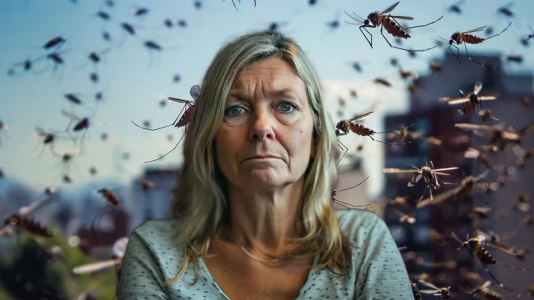
Argentina is going through a historic dengue outbreak
The common symptoms of dengue that indicate that we should go to the doctor include: fever, redness and inflammation of the skin, and intense pain in the head, behind the eyes, in the muscles and joints . Reporting these can help with early diagnosis and treatment.
It is important to know that this disease can have serious forms and cause death. You should go urgently to a health center if any of the warning signs appear, which are: intense and continuous abdominal pain; dizziness or fainting; persistent vomiting; drowsiness; restlessness or irritability; bleeding gums, vomiting, urine or stool.
What are the phases of dengue?
Dengue begins abruptly after a typical incubation period of between 5 and 7 days, and the course follows 3 phases: febrile, critical and convalescent.What happens if I have dengue and my platelets go down?
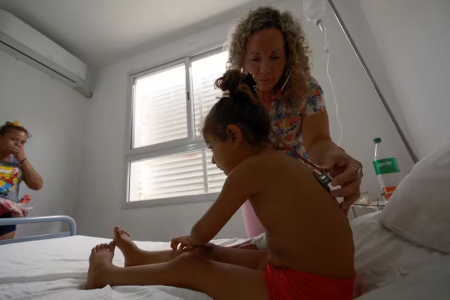
Doctor Laura García examines Francesca Escalada, infected with dengue, while her mother Rocío Beleisan reacts at the Dr. Oscar H. Costas hospital, in Joaquín V. González, Salta, Argentina. March 16, 2024. REUTERS/Javier Corbalán
In the febrile phase, the fever usually lasts 2 to 7 days and may have two other phases. In the critical phase, most patients improve medically during this phase; However, those with severe plasma extravasation develop severe dengue within hours as a result of a marked increase in vascular permeability. Patients with severe plasma extravasation may have pleural effusions, ascites, hypoproteinemia, or hemoconcentration.
And finally the convalescent phase occurs as a patient's well-being improves, hemodynamic status stabilizes, and plasma extravasation decreases. The patient's hematocrit stabilizes, or may drop due to the dilution effect of the reabsorbed fluid, and the white blood cell count usually begins to increase, followed by a recovery of the platelet count.
What is the most dangerous phase of dengue?
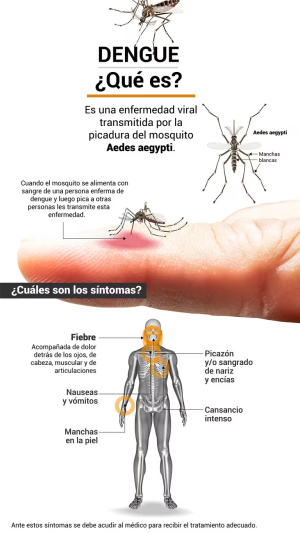
When you have a high fever (38° or more) accompanied by one or more symptoms such as headache, it may be dengue/Marcelo Regalado.
Severe dengue occurs when blood vessels become damaged and leak, and when the number of clot-forming cells (platelets) in the bloodstream decreases. This can lead to shock, internal bleeding, organ failure, and even death.
What is the Dengue disease process like?
Dengue has an incubation period of between 3 to 15 days, and is divided into 3 stages:- Febrile stage (days 0 to 5 of illness)
- Critical stage (days 5 to 7 of the disease)
- Recovery stage (after the 7th day of illness)
How to prevent dengue?
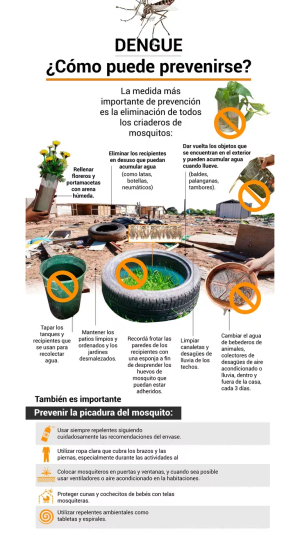
Regarding the measures to consider, the elimination of mosquito breeding sites is carried out in homes and common spaces. To do this, it is necessary to frequently throw away, turn over or sanitize the containers that accumulate water, even if they are small, both inside and outside the home.
Also, cover or cover large containers such as drums or elevated tanks with mosquito netting and clean gutters. It is important to brush the waterers and change the water daily. Swimming pools should be kept chlorinated and covered when not in use. The participation of every community and perseverance in these tasks is essential.
In areas where there is active dengue transmission, it is recommended to eliminate adult mosquitoes using insecticides to stop and stop transmission. This action requires trained personnel so that the actions are effective and at the same time prevent the development of mosquito resistance to the insecticide. In addition, the use of repellents is recommended according to the manufacturers' instructions, as a permanent individual protection measure while the cases continue.

